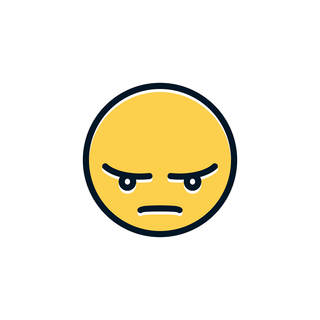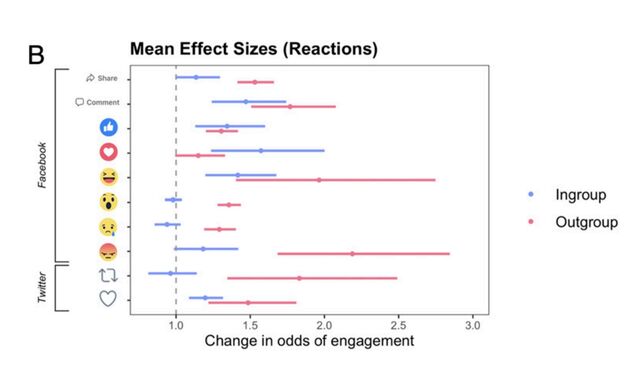Media
Out-Group Hate Is Highly Likely to Go Viral Online
A new study reveals social media’s perverse incentive structure.
Posted June 24, 2021 Reviewed by Lybi Ma
Key points
- Negative posts about the opposing party are very likely to go viral.
- Each additional word about an opposing party increases the odds of a post being shared by 67 percent.
- Social media may be creating perverse incentives for divisive content.

There has been growing concern that social media might increase political polarization. These concerns have become more relevant amid events like the January 6 storming of the capital, which revealed that violent rhetoric on social media may actually translate into real-world violence.
We wondered whether social media platforms actually incentivize polarizing content. In other words, is “dunking” on our enemies likely to get us more likes and shares online?
To answer this question, we conducted a study, recently published in the Proceedings of the National Academy of Sciences, that looked at what social media posts are most likely to go “viral.” For this study, we analyzed almost 3 million tweets from US politicians and news outlets.
The biggest predictor of virality we found, out of all relevant predictors measured, was whether a social media post was about an outgroup. Specifically, posts about the opposing party were twice as likely to go viral than posts about one’s own party.
Additionally, each additional word about the opposing party (e.g., “Democrat,” “Leftist,” or “Biden” if the post was coming from a Republican) in a social media post increased the odds of that post being shared by 67 percent.
Posts about the outgroup were almost exclusively negative. For instance, the post “Every American needs to see Joe Biden’s latest brain freeze,” by Breitbart News was very popular.
Out-group posts were also very likely to receive “angry” reactions on Facebook, as well as “haha” reactions (indicating mockery), comments, and shares.

Posts about the ingroup did not become nearly as viral. However, they were slightly more likely to receive “love” and “like” reactions.
Out-group hate was a stronger driver of virality than in-group love. This mirrors a political climate in which out-group hate is growing steadily and becoming a more important predictor of various outcomes, such as voting behavior.
These results are troubling in an “attention economy” where the social media business model is based on capturing our attention to sell ad revenue. This business model has created an environment where many of us depend on social media engagement – to promote a political campaign, to sell a product, or to draw attention to an important cause. However, since “viral” content is likely to be highly negative toward our out-groups, this business model is likely creating perverse incentives for out-group hate.
Since divisive content helps social media platforms keep us engaged, it’s hard to expect them to do anything to solve this problem (just as we wouldn’t expect factories to create their own effective environmental regulations). Recently, reporting from The New York Times found that Facebook researchers tested a feature to reduce the number of harmful posts in their feed, but declined to implement this feature because it reduced the number of times people opened Facebook. Facebook has also made an employee playbook to respond to accusations of polarization online, in which they claim that there is no clear evidence that social media contributes to polarization (even though Facebook reportedly shut down internal research demonstrating that their platform contributes to polarization, and they do not share data with researchers who could help understand the role of social media in polarization).
Hopefully, this research inspires solutions to help re-think the perverse incentive structure of social media platforms.
References
Rathje, S., Van Bavel, J. J., & van der Linden, S. (2020). Out-group animosity drives engagement on social media. Proceedings of the National Academy of Sciences.


